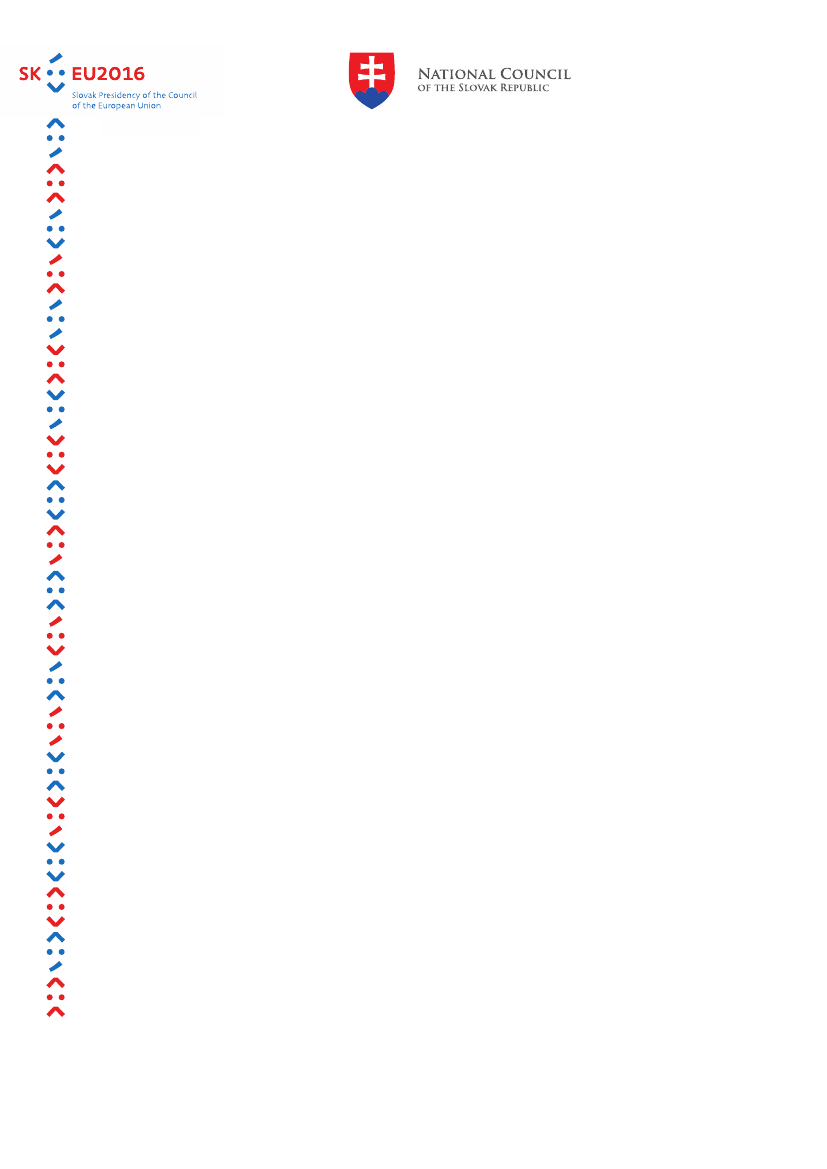
Bratislava, 15
th
November 2016
PLENARY MEETING OF THE LVI COSAC
13 – 15 November 2016, Bratislava
Contribution of the LVI COSAC
1. Strengthening the role of national Parliaments in the EU
1.1 COSAC appreciates the progress of the current European Commission (2014 - ) in improving
the relations with national Parliaments, as documented in the 26th Bi-annual Report of COSAC,
notably through the increased number of visits of Commissioners to national
Parliaments/Chambers, and encourages the European Commission to further pursue this effort to
create a form of lasting dialogue with national Parliaments. This dialogue supports the
competencies of the national Parliaments to keep their national Governments accountable and to
scrutinise their national and EU policies.
1.2 In the field of political dialogue between the European Commission and national Parliaments,
COSAC sees potential for improvement of responses to national Parliaments’ reasoned opinions
and therefore suggests that the European Commission better addresses national Parliaments’
specific concerns within a period of no more than eight weeks and analyse all possible points of
views when preparing its responses, especially the responses when the so-called “yellow card”
mechanism is triggered. COSAC also stresses the importance of discussions and exchanges of
views in the subsidiarity check procedure between national Parliaments.
1.3 COSAC, in light of the established political dialogue with the EU Commission, invites the
European Parliament to enhance, for its part, the consideration of the national Parliaments’
opinions in the framework of the political dialogue in the relevant parliamentary committees.
1.4 COSAC considers the „green card” mechanism an important tool to improve the role of
national Parliaments and therefore encourages national Parliaments to continue exploring future
possibilities of using the initiatives under the „green card”.
1.5 COSAC notes that communicating the EU issues effectively in current circumstances proves
to be one of the crucial elements in bridging the gap between the European Union and its citizens
and recognises the role of national Parliaments in engaging citizens, providing them with
impartial information and raising general awareness of EU related issues. In this respect it is
important to underline the democratic mandate the national Parliaments have representing the
voters. In the context of the outcome of the UK referendum, COSAC recognizes the crucial role
of national Parliaments, as institutions of direct democratic mandate and accountability, in
contributing to the functioning and the future of the unique project of the European Union.
1.6 COSAC invites all parliaments to play a more vocal role in communicating the EU issues
and to achieve this, encourages national Parliaments as well as the European Parliament to share
1